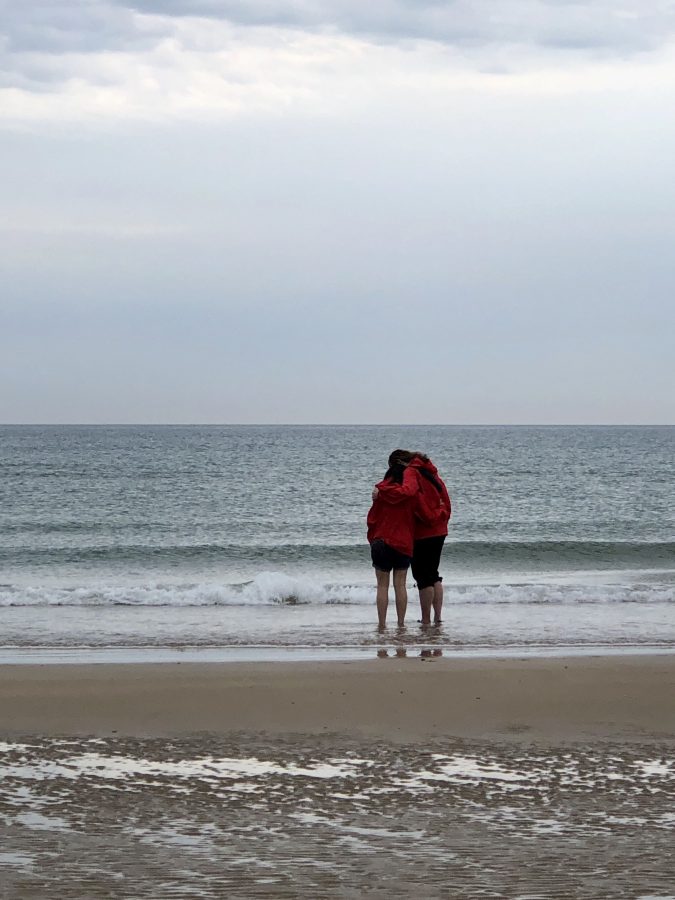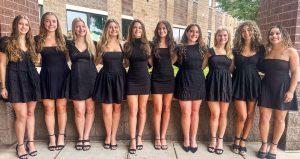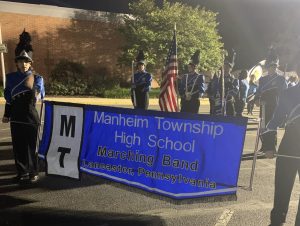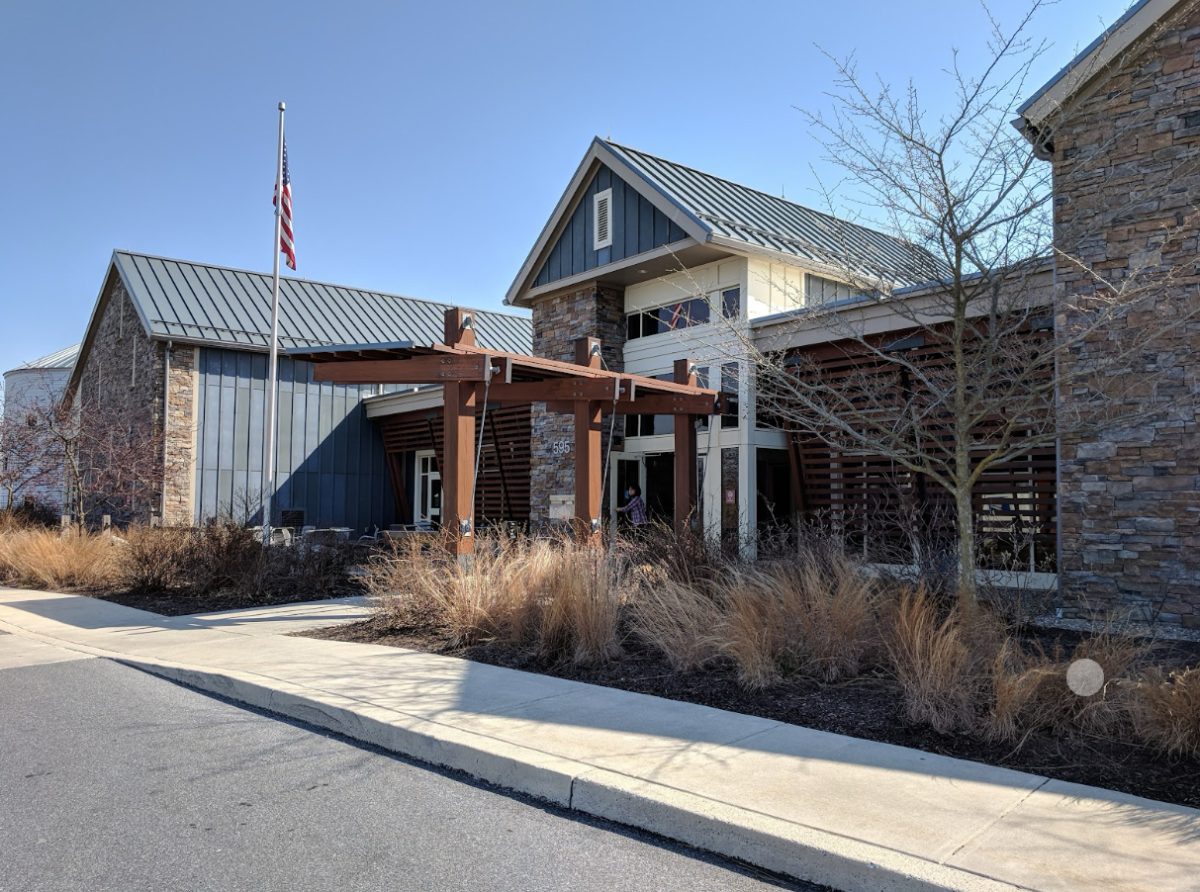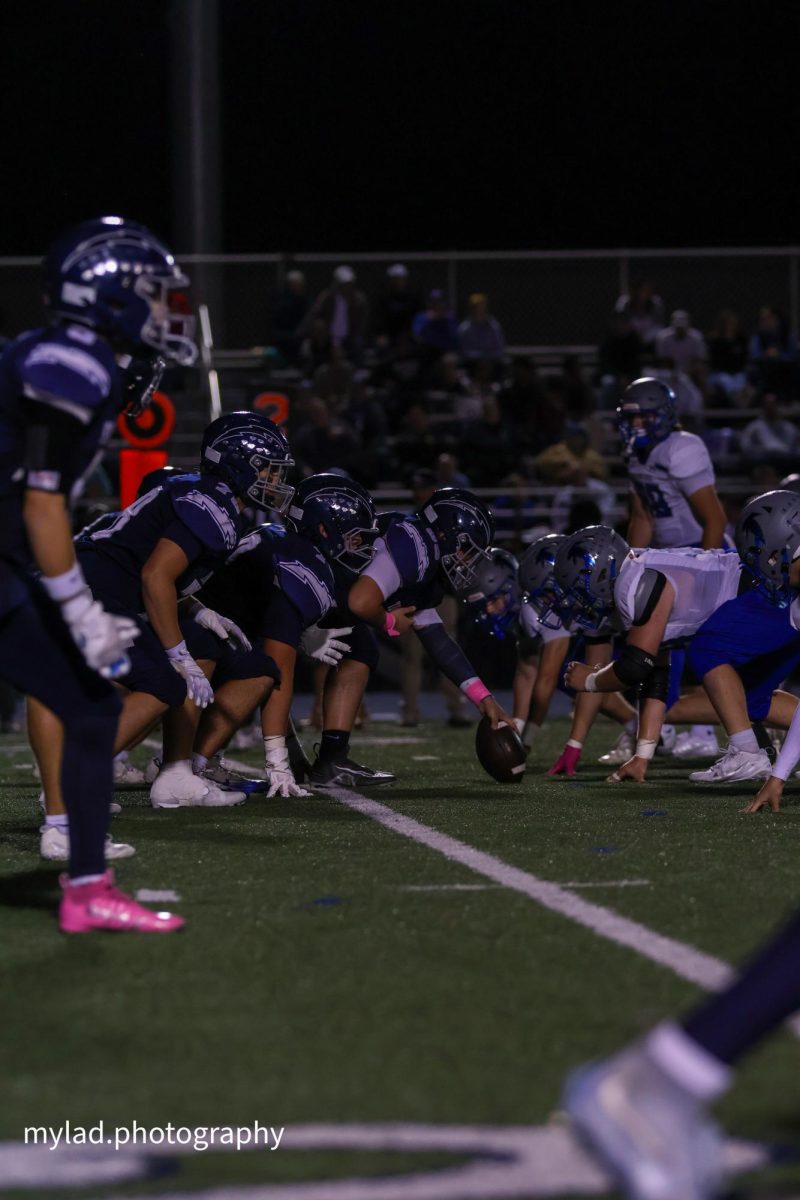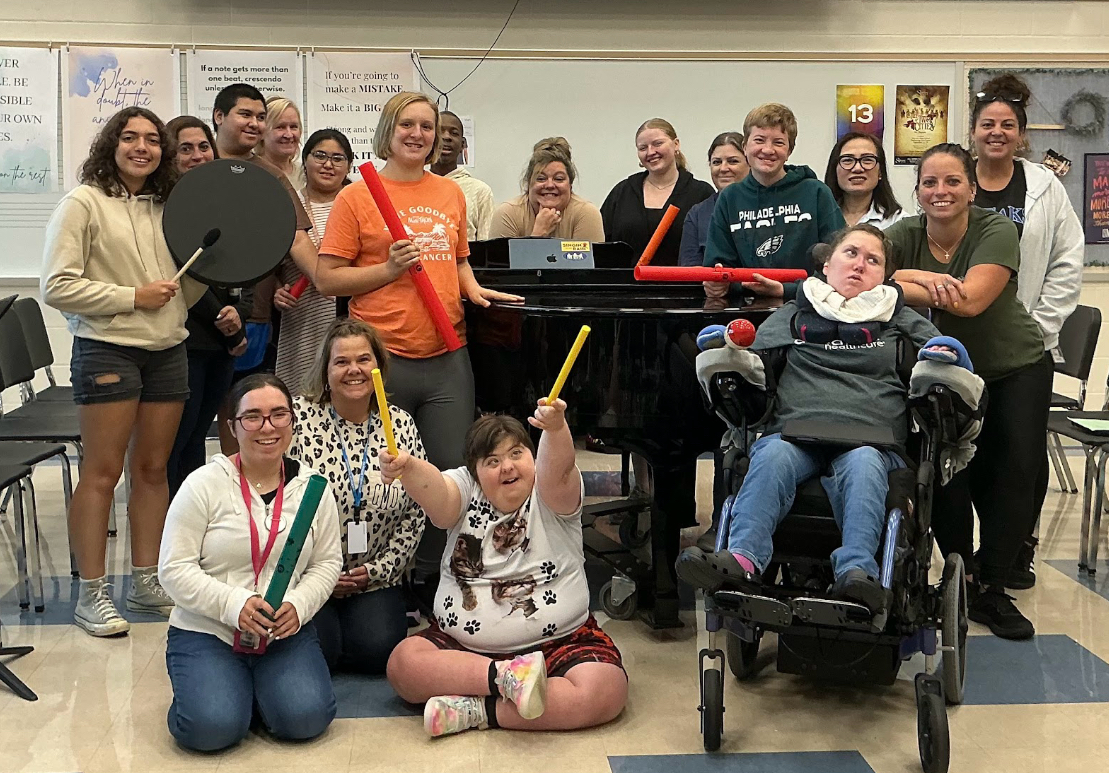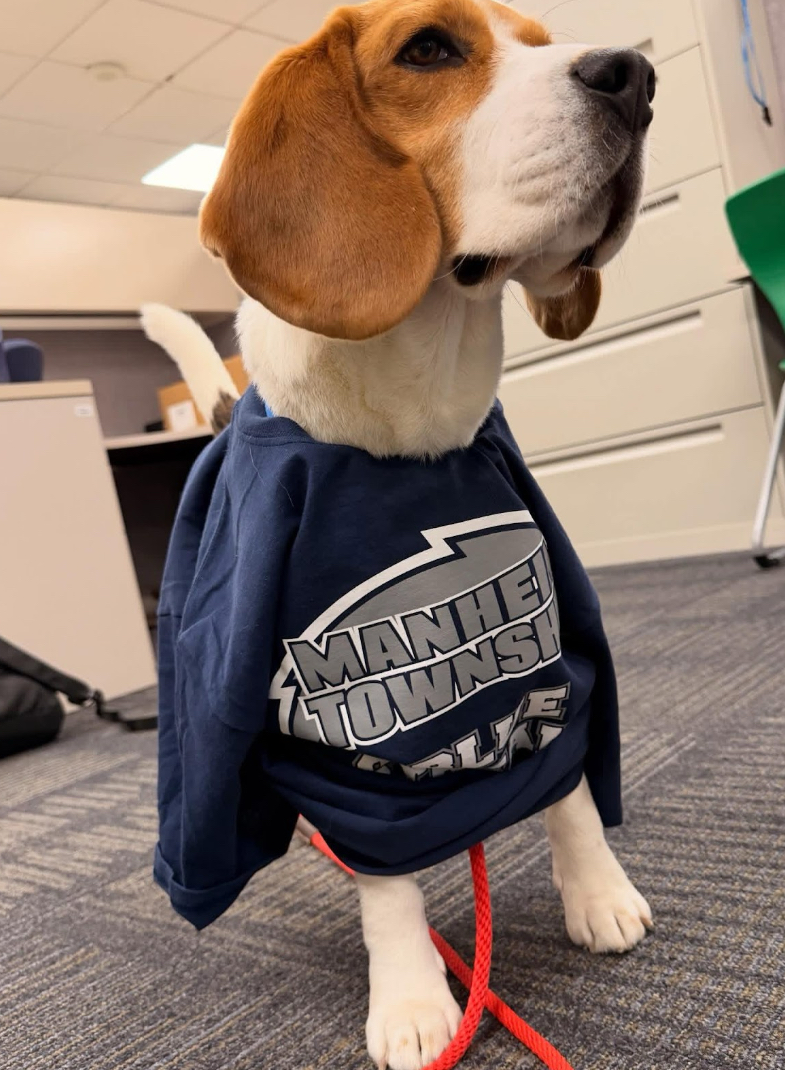Trip to France unveils deep past of former Township students
October 9, 2019
By Baybars Charkas
Many years ago, Edmund William Duckworth, known as Bill to family and friends, graduated from Manheim Township’s Class of 1939. Unlike today’s starry-eyed and college-bound youth, Duckworth had a very different fate in store. Roused to action by the call of his country, Duckworth took up arms to help cast off the shackles of Nazi tyranny in Europe and North Africa, only to lay down his life during the Normandy landings.
Many years later, in the summer of 2019, two Manheim Township residents—Nicole Eshelman, history teacher, and Lauren Craig, senior—endeavored to chronicle Duckworth’s fateful journey anew. By studying his story, they strove to examine how the enormous loss of life during human history’s bloodiest conflict gave rise to the liberties we enjoy today, as well as to honor one of Manheim Township’s oft-forgotten heroes.

“[The program] was established really to understand the price that’s paid for freedom… Our freedom is not free; there is a huge price to pay to maintain it,” said Eshelman.
The trip was funded by the Albert H. Small Normandy Institute and led from George Washington University. Albert H. Small, a soldier in the American Army during the Second World War, sought to help students and teachers understand the deadly toll borne by countless servicemen wrenched from their families and homes to battle abroad. A wealthy real estate developer, Small accrued the funds necessary to organize the program in perpetuity, offering it to students and teachers from across the United States.
Eshelman presented the program to her eleventh-grade classes, and Lauren was selected from about a dozen candidates by Manheim Township’s history teachers. Eshelman and Lauren then applied together to the Albert H. Small Normandy Institute, where professors at George Washington assessed applications. They chose Manheim Township and fourteen other schools.
“All the students that applied with me had amazing essays, but Lauren’s stood out because she had a lot of family members serve in the military, particularly in World War II. So her essay had a whole bunch of relics from World War II. It made the connection really personal for both of us because the got to visit [her relatives’] gravesites in Arlington before we left and got to see the place where they landed. It was really cool to have that as an extra part of our studies,” said Mrs. Eshelman.
Departing on June 15th and returning June 27th, Eshelman and Craig’s trip involved five days spent researching and note taking at George Washington University and more than a week’s worth of touring World War II sites in Normandy, France. Along with attending lectures by George Washington University staff, Eshelman and Craig studied Duckworth and the D-day invasion in great detail, painstakingly sifting through boxes upon boxes of documents and artifacts from the National Archives. This far-reaching research, coupled with lengthy hours of preparation and reading beforehand, initiated Eshelman and Craig into the world of Edmund Duckworth.

Born to Leon and Irene Duckworth, Edmund Duckworth and his brother James grew up in a traditional, all-American middle-class family. He hailed from a long lineage of military service; his grandfather was the oldest veteran of the American Civil War in Pennsylvania. Spurred on by his father’s spirited encouragement to be active in his community, Duckworth showed himself to be a shrewd and involved student. He wrote for and edited Hi-Lite, the print predecessor of BSN Online. He played baseball and landed the leading role in Manheim Township’s theatrical production of “Tons of Money” his senior year. His friends knew him as a master of the dance floor and the senior prom planner. On June 2, 1939, Duckworth graduated.
Upon leaving Manheim Township, Duckworth attended Elizabethtown College for a semester, after which he enlisted into the Citizens Military Training Corps and trained on the home front. Duckworth’s hard work and doughty enthusiasm earned him praise; he stood out among his brothers-in-arms, rising to the rank of second lieutenant. Thereafter he joined the Army’s 1st Infantry Division and left for Britain. He would never return.
Duckworth and his division fought first in North Africa, then in Sicily. On both fronts, Duckworth valiantly led his men, earning accolades and honors for his gallantry and selflessness. Writing to award Duckworth with the Silver Star, the third highest military honor that can be conferred upon a soldier, Adjunct General Leonidas Gavalas noted that “Lieutenant Duckworth unhesitatingly assumed command of his company when his commanding officer was wounded, reorganized his company when his commanding officer was wounded, reorganized his men, and brilliantly led them in an attack upon the enemy.”
Before his death in Normandy, Duckworth returned to England one last time. There, he found a kindred spirit in Audrey Travers, an English woman. No doubt wooed by his bewitching dance skills, Travers fell in love with Duckworth. The couple wed on June 1, 1944, a paltry five days before the Normandy landings.
Duckworth spent his last day mired in wretched conditions. Little visibility owing to fog laid low on the waterline made accurate navigation impossible. In the mad scramble to ground and moor the landing craft to the shore, many distraught steersmen overshot the intended landing location, exposing their crew to the most fortified section of German encampments or causing them to drown under the weight of their equipment. Duckworth was lucky enough to swim ashore and made headway towards the beachhead unscathed. And yet, the unyielding barrage of German weaponry left little hope of any further advancement. Perhaps realizing that fate was drawing nigh, Duckworth toasted Scotch whiskey with two of his men. Moments later, he was sniped from afar, killed instantly.
Unbeknownst to Duckworth, however, his wife was three-months pregnant; Duckworth’s only son, Charles Duckworth, was born six months after his father’s death. After considerable bureaucratic wrangling, Leon Duckworth secured Audrey Travers the right to raise newborn Charles in the United States. All three have since passed, as has James Duckworth. Edmund Duckworth’s next of kin is his granddaughter Andrea.
Eshelman and Craig spent their week in France along the Norman coast and countryside, places dotted with the blood and sacrifice of American servicemen. They examined the artillery and naval vessels used during the invasion up close, and, on the last day, they visited the Normandy American Cemetery. There, abreast Edmund Duckworth’s gravestone, Craig gave a soul-stirring eulogy for the slain soldier.
This trip has done much good to widen Eshelman and Craig’s knowledge of the events of the Second World War. For Craig, the trip has allowed her to explore a family history heretofore untold. “I was not fully aware of my personal connections to World War II until I started talking to my grandparents, and they told me about stories of their parents or people they knew. I got to learn more about my family and how I was connected personally to World War II,” said Craig.
There were other Manheim Township graduates who perished during the Second World War. These are their names:
George E. Eagroff
Stanley R. Fisher
Joseph R. Gassman
Wilmer Greenwalt
Paul R. Harnish
Earl R. Leaman
Robert C. Macken
R. George Phelan
Richard R. Vogel
May they rest in peace.


